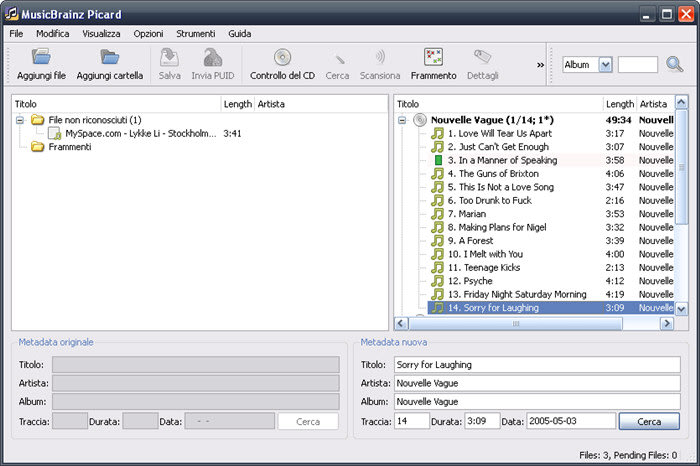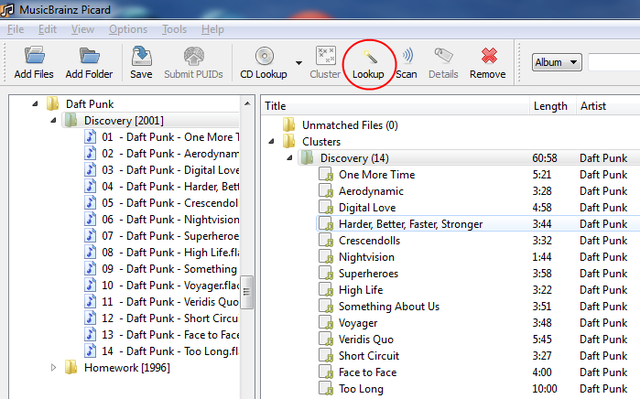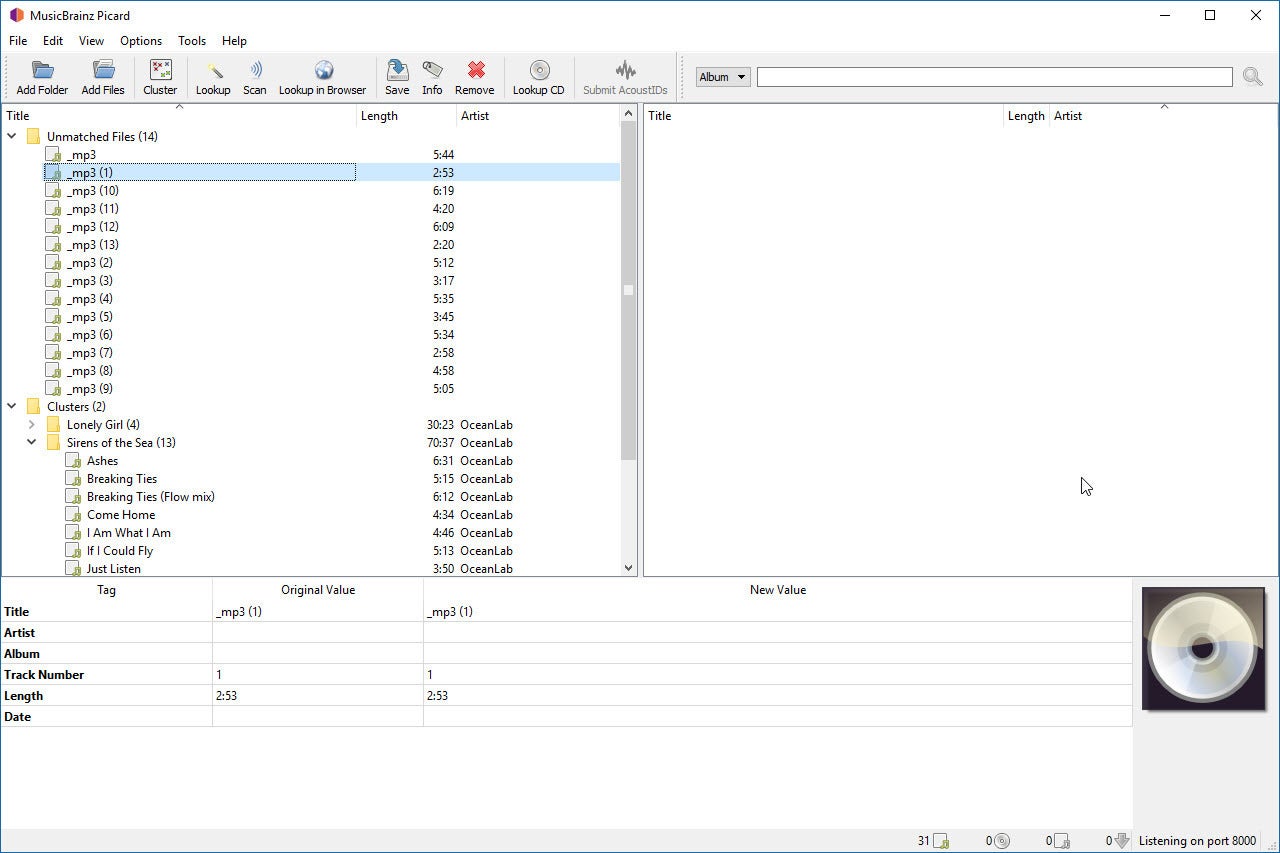


The more information your file have the more precisely they will be shown in your library.

So, all those files need to be equipped with the necessary information to be fetched correctly.
MUSICBRAINZ PICARD BETTER THAN MANUAL
Files need to have a proper name so you can navigate in the filesystem easily in a typically manual fashion.īut Kodi does not use filenames to populate your library, but the metadata embedded in the files instead. When it comes to music files, songs, albums, playlist and the like it all reverts into the so called tagging quest.
MUSICBRAINZ PICARD BETTER THAN HOW TO
I will also use some odd examples to enter into the details of Picard processes to explain you how to prevent some common mistakes that get unseen and wrongly accepted in bulk renames of big music archives. Then you need a proper schema to tag everything effectively without spending ages to check your work manually. edit: I've just been informed that there's already a ticket for improving how Picard handles pseudoreleases which has a link to a plugin doing what you want to be doing.Are you planning to organize your music bank in a definitive way and make it ready to be digested by Kodi scraper? Some other plugins that use this to request and process further data are the album artist website and Last.FM.Plus plugins. Now that you have the MBID of the relationships target, you can use the get method of Picards webservice module (the albums tagger.xmlws attribute is an instance of the XmlWebService class) to send another request to the MusicBrainz website asking for data about that release (don't forget to in- and decrement the albums _requests attribute so it doesn't complete its loading steps until after you've changed its data). The release argument that gets passed to the processor is an instance of Picards XmlNode class and its structure (including its child objects) resembles the XML you get by asking the MusicBrainz server about this release via the web service ( this is what it returns for your example release if you only ask it about relationships). Log.info("Found a transliterated tracklisting relationship") TRANS_REL_UUID = find_transliteration_relationship(album, metadata, release): # The relationship type id for transliterations from A simple plugin iterating over all relationships of a release would look like this: PLUGIN_NAME = "Find transliterated tracklisting relationships"įrom tadata import register_album_metadata_processor The information about relationships, including transliterated tracklistings, is available in Picard if you write a metadata processor. Is this at all possible, and if so how do I do it? I've been looking through the source of Picard and also the standalone web service but haven't been able to find anything. Since the relation is not available as a Picard variable, it can't be accessed by any way indicated in the API. The first line is what I'm not sure how to do. In pseudocode: pseudo_release = actual_release.getTransliteration() # As indicated in a relationshipĪctual_release.getTrack(i).setComment(pseudo_release.getTrack(i).getTitle()) I would then have to transfer the titles of those tracks into the comment field of my files. For a given release, for example, I would have to first read the relation for the ID of the related release. MusicBrainz contains these transliterations as pseudo-releases existing in parallel with the actual releases. My idea is for it to automatically insert transliterated track listings as comments for releases with track titles written in non-Latin scripts. I have been trying to write a Picard plugin.


 0 kommentar(er)
0 kommentar(er)
